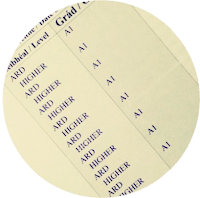The poetry of T. S. Eliot – a personal journey. Write a personal response to the poems by T. S. Eliot on your course. Support your points with reference to the poetry on your course.
Tip: note the things that make this essay personal such as expressing opinion (singing praises in the intro and not liking East Coker), associations through memories, personal interpretation and that the essay is written in the first person.
“The Love Song of J. Alfred Prufrock” is literally overflowing with allusions to various literary works. The allusion to the “Book of Ecclesiastes” fits brilliantly, as it emphasises the procrastination of the main character. The original text reads “To everything there is a season, and a time to every purpose under heaven: A time to be born, and a time to die.” The message is that there is a natural flow of time and events and there is no need to interfere with that. However, Prufrock perverts this idea and attempts to justify his cowardice and indecisiveness, saying that “there will be time” to do whatever he wants – to ask his “overwhelming question,” which ultimately he fails to do.
Eliot seems to be fascinated by the Bard of Avon and includes several allusions to his work. In the named poem, the line “No, I am not Hamlet, nor was meant to be” is an obvious reference to Shakespeare’s most celebrated tragedy “Hamlet.” But behind such a blunt reference is a subtle method – it is an allusion to Hamlet’s famous soliloquy (Act 3, Scene 1) which opens with the phrase “To be, or not to be.” This instinctively stimulates the reader to compare Hamlet and Prufrock. Obviously, at first this diminishes Prufrock. Hamlet is a centre-stage, dazzlingly gifted mysterious prince… and who exactly is Prufrock? An obscure “attending lord.” But on closer examination, I found that they have more in common than is immediately obvious. They both procrastinate, they are both indecisive and they like to reflect. Although it is hard to make out behind Prufrock’s comic image, his monologue made me believe that he is a deeply intelligent being, overanalysing and unsure. The way this allusion opened up an avenue to understand the character fascinates me. Remembering the historical context makes me realise that Eliot was probably trying to show that the role of men changed, perhaps even diminished, after World War I and, on the background of all the devastation brought by the war, there is a rich inner world in some of the lost and disadvantaged members of society.
Shakespeare’s work is alluded to on multiple occasions. In “A Game of Chess“, part of “The Waste Land”, the allusions are at the beginning and the end of the poem. “The chair she sat in, like a burnished throne” is a reference to Cleopatra’s throne in “Anthony and Cleopatra.” This allusion further enhances the luxury of the already overwhelmingly opulent boudoir with a “sevenbranched candelabra,” jewels and satin, by adding a classic twist to his poem and giving it a touch of sophistication. It also reminds me of Cleopatra’s famously troubled love life and tragic death. As I read on, I find out that her relationship is in crisis: the man she is addressing does not respond to her hectic words. The closing allusion “Goodnight, ladies, goodnight, sweet ladies, goodnight, goodnight,” the words spoken by Ophelia just before she commits suicide, just like Cleopatra, adds to the despair of the poem. Interestingly, it echoes the closing lines of “The Love Song…” “till human voices wake us, and we drown,” reminding me of the way Ophelia died. This emphasises the despair, so characteristic of the time the poems were written. However, it also relieves that despair: if things were this bleak in ancient Egypt and in medieval Denmark… perhaps, this is just part of the normal ups and downs? The poet takes that hope away from us… After all, the poem is called “The Waste Land.” The reference made by the husband to a 1912 song:
So the use of literary allusion is incredibly powerful and sets me off thinking of how the views and times of Dante, Shakespeare and the Bible compare and contrast with those of Eliot and his characters. It is a nice challenge that leaves a pleasant sophisticated aftertaste.
A different aspect of Eliot’s poetry that makes him stand out among all other poets is his original breath taking imagery. “East Coker” presents us with an extended metaphor at the base of the entire poem. The world is imagined as a hospital – “The whole earth is a hospital,” the “wounded surgeon” is God and the Church is seen as the “dying nurse.” T.S. Eliot’s main point is that we must suffer illnesses to be cured i.e. we must suffer to get rid of the legacy of the original sin. God’s hands are bleeding, he is hurt by what we have done to the earth, to each other and yet he tries to treat us. His compassion is sharp; he loves us, but he is strict. Our hope for salvation is through suffering: “Our only health is the disease.” I don’t particularly like this portrayal, but the imagery is appropriate and clever; it offers hope on a background of the Eliot’s often bleak views. He offers the potential to reach happiness here: “We shall die of the absolute paternal care that will not leave us, but prevent us everywhere.” Eliot’s elaborate and complex imagery paradoxically allows him to portray the essence of human existence with no bells and whistles.
“The Love Song…” contains some vivid imagery:
Thus, T.S. Eliot’s poetry is really great, as far as I am concerned. I enjoyed his imagery, his unusual settings and subject matter, his views on salvation, depression and decision-making. I found the allusions to be a real literary treat that opens a whole new way to read poetry.
For another sample essay see:
T.S. Eliot Sample Answer & Notes: Troubled Characters In A Disturbing World
Complete Guide: A1 Leaving Cert English Notes and Sample Answers 2017


